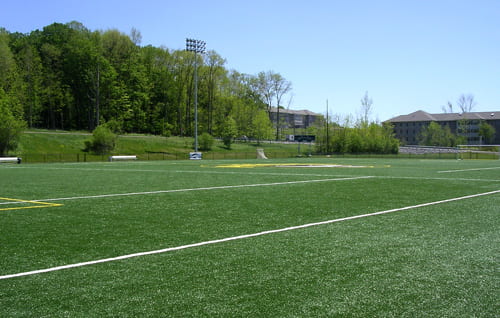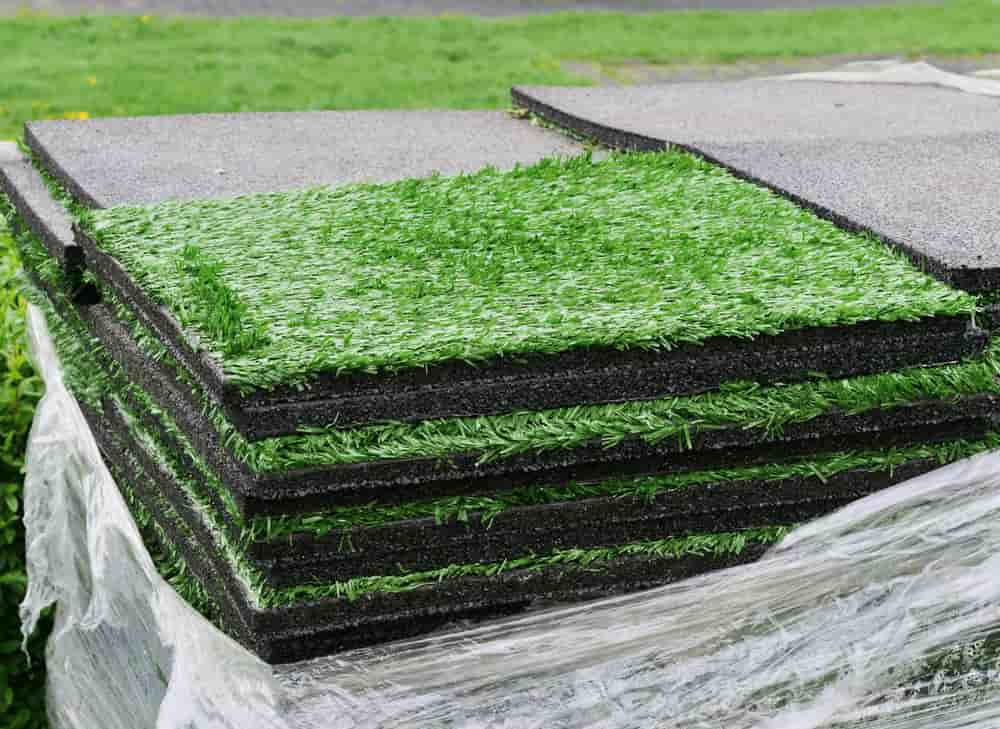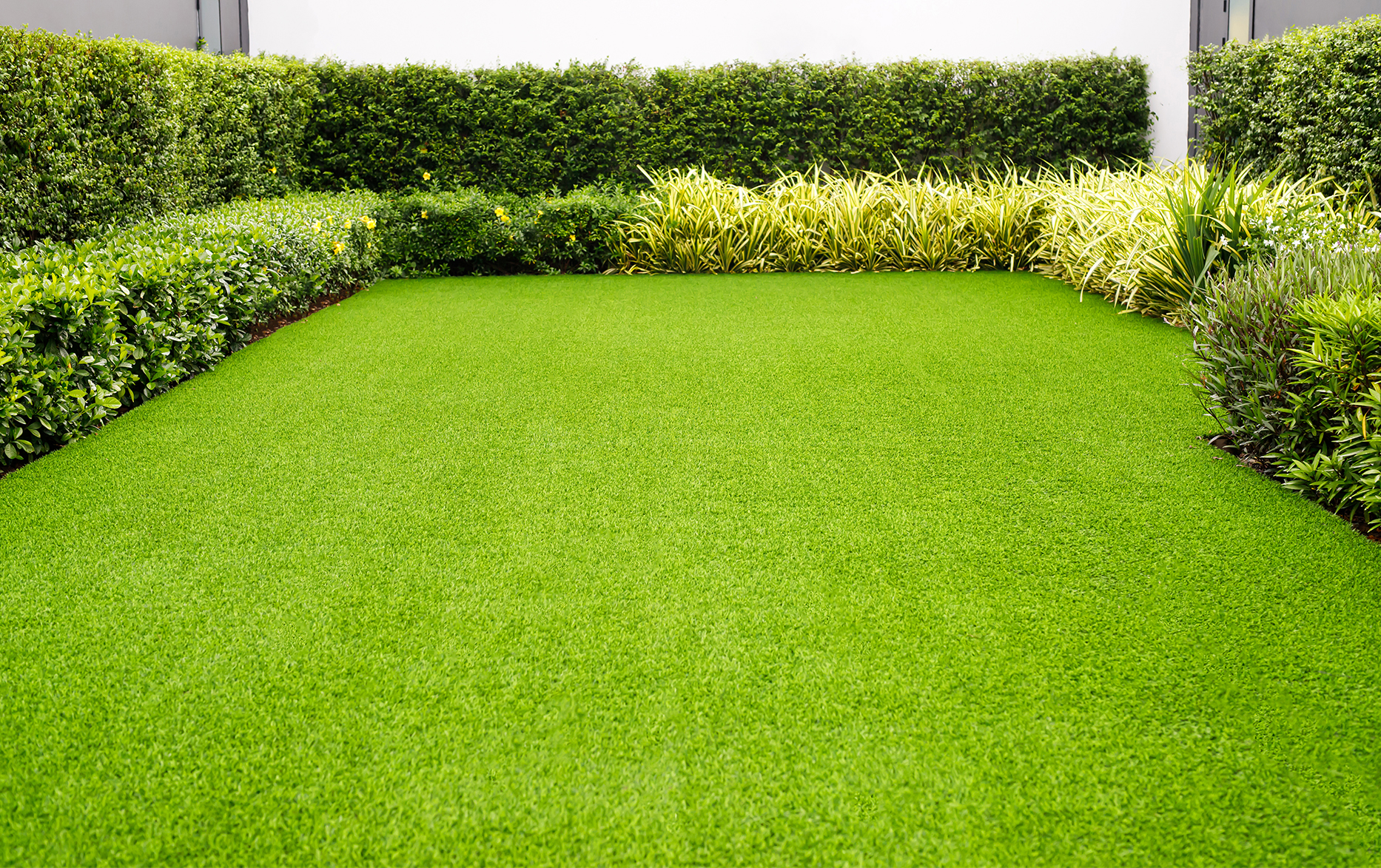Look Into the Environmental Conveniences of Opting for Synthetic Grass Solutions
The adoption of synthetic grass options presents a compelling chance to resolve pushing ecological challenges. By dramatically lowering water use and decreasing the application of hazardous chemicals, these options not only advertise sustainable landscape design however likewise secure neighborhood ecological communities. In addition, the reduced carbon footprint connected with reduced maintenance tasks adds to a much more sustainable method to land management. Nonetheless, the effects of these benefits expand past plain conservation initiatives, elevating questions regarding their long-lasting influence on environment preservation and general eco-friendly balance. Discovering these measurements discloses a complex interplay worth considering.
Water Conservation Conveniences
One of the most considerable benefits of artificial grass is its ability to conserve water. In comparison, artificial grass does not need watering, considerably lowering the total demand for water sources.
By getting rid of the need for normal watering, fabricated turf adds to lasting landscape techniques and assists minimize the ecological effect of too much water usage. The conservation of water expands to the reduction of drainage, which can lead to dirt disintegration and waterway air pollution.
Additionally, the setup of synthetic lawn allows house owners and towns to assign water sources more efficiently, concentrating on important usages such as drinking water and agriculture. The shift towards synthetic grass not only advertises accountable water usage yet additionally straightens with wider environmental goals targeted at protecting natural sources.
As communities significantly focus on sustainability, the water conservation advantages of synthetic lawn provide an engaging situation for its adoption in business and household landscape design jobs.
Decreased Chemical Use
The transition to synthetic grass substantially decreases the dependence on chemical treatments typically made use of in natural lawn upkeep. Conventional turf monitoring typically entails the application of plant foods, chemicals, and herbicides to advertise growth and control bugs. These chemicals can posture risks to human health, neighborhood wildlife, and the setting, contributing to dirt and water contamination.
In contrast, synthetic grass removes the requirement for these harmful materials. Once mounted, it needs minimal maintenance, primarily including regular cleaning and irregular infill replenishment. This reduction in chemical usage not only profits the instant environment yet likewise contributes to broader eco-friendly stability. By decreasing the launch of artificial substances into the community, synthetic grass advertises healthier dirt and water systems.
Additionally, the absence of chemical overflow related to synthetic turf installments aids secure local waterways from air pollution, sustaining marine life and maintaining biodiversity. Turf installation phoenix az. As neighborhoods significantly focus on sustainable techniques, opting for synthetic grass provides a sensible remedy that aligns with ecological conservation goals. Via this change, homeowner can take pleasure in lush green areas without compromising eco-friendly health and wellness, leading the way for a more lasting future
Reduced Carbon Impact

In addition, the setup of synthetic grass can result in substantial water conservation. Natural yards need significant quantities of water for watering, which not just includes in the carbon impact associated with water extraction and treatment yet additionally stress local water resources. In comparison, synthetic grass needs very little maintenance, calling for no watering, thus dramatically reducing water usage and its linked power costs.
In addition, the durability of synthetic grass adds to its lower carbon influence. With a life expectancy of as see here now much as 15 years or more, the requirement for constant substitutes is reduced, resulting in less waste and lower energy intake in production and dealing with conventional grass options. On the whole, synthetic grass provides a lasting option for eco conscious landscaping.
Habitat Conservation
Environment conservation is an important consideration in the dispute over landscaping options, especially when comparing synthetic grass to natural turf. Natural grass lawns frequently require substantial maintenance, consisting of making use of pesticides, herbicides, and plant foods, which can detrimentally affect regional communities. These chemicals can seep right into the soil and waterways, hurting indigenous plants and fauna and interrupting regional habitats.
On the other hand, synthetic grass presents a chance to decrease the environmental footprint of landscape design. By choosing artificial yard, house owners can reduce the disturbance of all-natural environments related to typical lawn treatment practices. Man-made grass gets rid of the need for dangerous chemicals, thereby shielding close-by wildlife and preserving the integrity of surrounding ecosystems. The installment of synthetic grass can lead to the conversion of previous yard areas into even more biodiverse landscapes, such as pollinator yards or native plant areas, which can support regional wildlife.
Inevitably, the shift to artificial grass not only saves water and reduces upkeep initiatives however likewise promotes a much more harmonious relationship in between human tasks and the natural atmosphere, promoting environment preservation at the same time.
Long-Term Sustainability
Long-term sustainability is a critical consider evaluating the benefits of artificial turf over conventional grass lawns. Among one of the most substantial benefits of artificial grass is its longevity; it can last approximately 15-20 years with marginal maintenance, whereas natural yard needs constant reseeding and replacement. This longevity reduces the demand for constant resources, such as water, plant foods, and chemicals, which are vital for keeping a healthy and balanced yard yard.
Furthermore, artificial turf adds to a decrease in carbon exhausts related to lawn care tools. Standard yards commonly require gas-powered lawn mowers, leaners, and blowers, every one of which Get More Info add to air pollution. Phoenix turf companies. In comparison, fabricated turf gets rid of the need for such equipment, advertising a cleaner atmosphere
Moreover, the manufacturing of synthetic grass increasingly makes use of recycled materials, enhancing its sustainability profile. As producers adopt green practices, the environmental impact of synthetic grass remains you can try this out to lessen.

Verdict
The adoption of synthetic grass remedies provides significant environmental advantages, including substantial water preservation, lowered dependence on dangerous chemicals, and a reduced carbon impact. In addition, synthetic turf aids in preserving natural environments by decreasing land disturbance and promoting lasting sustainability through the usage of long lasting products. Jointly, these variables highlight the possibility of synthetic turf to contribute positively to ecological wellness and provide a feasible alternative to conventional landscaping techniques in a significantly resource-conscious world.
In comparison, synthetic lawn does not need watering, substantially minimizing the general need for water sources. By lessening the launch of artificial compounds into the ecological community, fabricated turf advertises healthier dirt and water systems.
Furthermore, the installment of artificial turf can result in considerable water preservation. In contrast, fabricated turf requires very little maintenance, requiring no watering, therefore considerably lowering water usage and its linked power costs.
